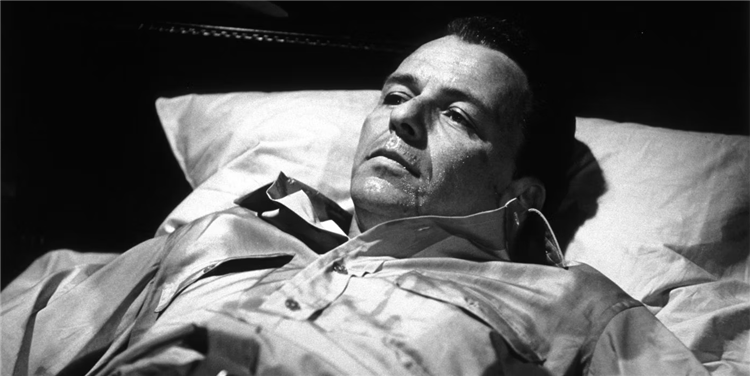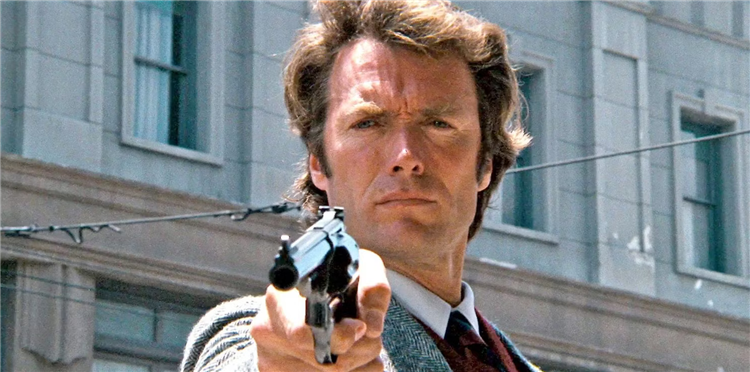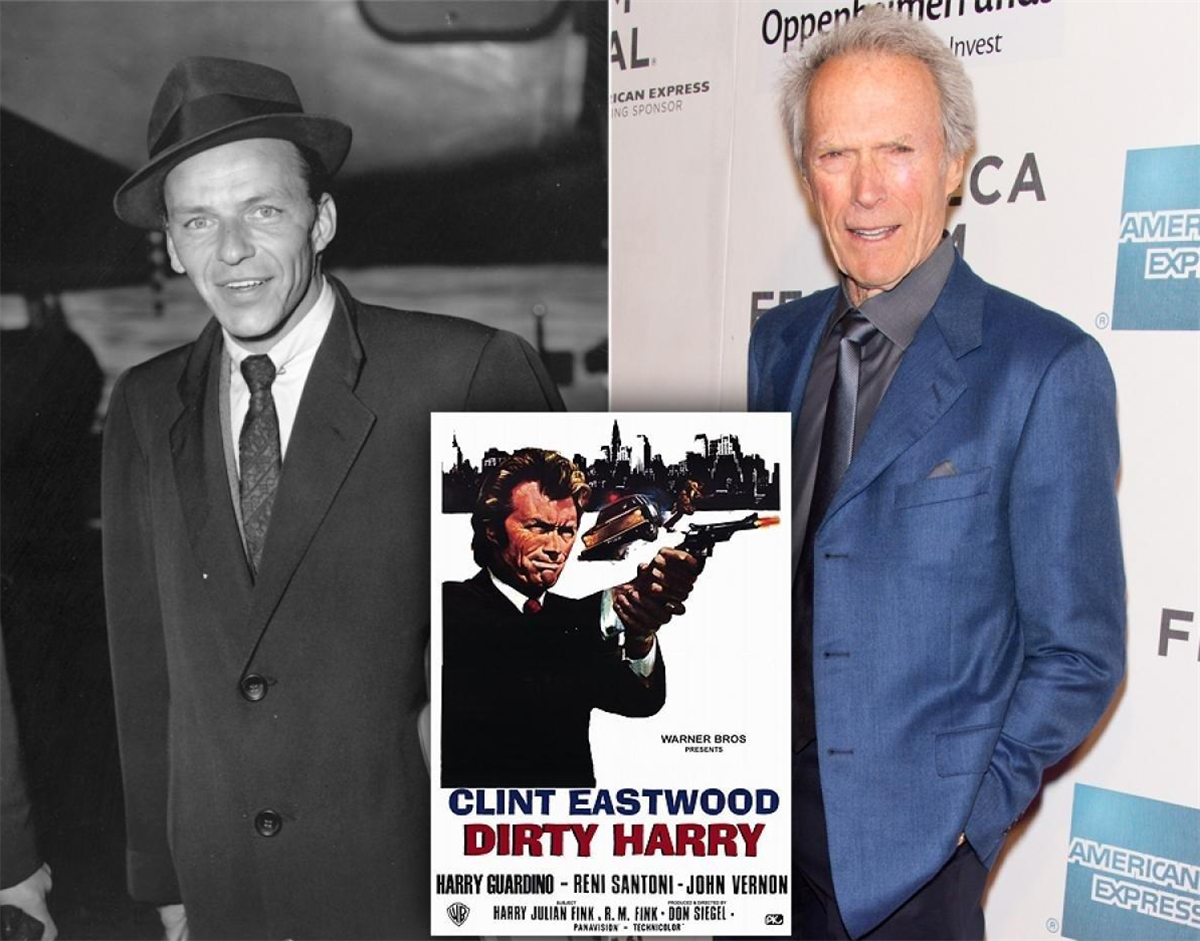“Go ahead. Make ‘My Way'”
- Frank Sinatra was originally offered the role of “Dirty” Harry Callahan but turned it down due to a broken wrist and the size of the gun.
- Many other actors, including John Wayne and Robert Mitchum, also rejected the role for various reasons.
- Clint Eastwood ultimately took on the role and the film became a success, sparking a franchise, while Sinatra pursued other projects in his acting career.

Frank Sinatra is best known for his outstanding singing career, world-renowned for such hits as “My Way,” “That’s Life,” and the immortal “New York, New York.” Yet Ol’ Blue Eyes was a man of many talents and passions, one of which was an acting career that saw Sinatra star in From Here to Eternity (for which Sinatra would win the Best Supporting Actor Oscar at the 1954 Academy Awards), The Manchurian Candidate and The Detective, a film that’s a pseudo-prequel to everyone’s favorite Christmas classic Die Hard. In fact, the character of John McClane, which Bruce Willis made his own, was offered to Sinatra first as his character in The Detective is the protagonist in the sequel book that Die Hard is based on. Stranger yet, John McClane isn’t even the first iconic film cop role that Sinatra passed up. He was also in the running for – and was committed to for a time – the role of “Dirty” Harry Callahan in the 1971 neo-noir classic Dirty Harry.
The Road Was Being Paved for Frank Sinatra as “Dirty” Harry Callahan

The script for Dirty Harry, with its original title of Dead Right, had been put together by writer Dean Riesner, Harry Julian Fink, and R.M. Fink. The script took its inspiration from the true-life Zodiac killings that plagued California in the late 1960s, and its protagonist is based on Dave Toschi, the dogged detective who was the lead investigator on that case. The script landed on its fair share of Hollywood desktops, with the likes of directors Sydney Pollack and Irvin Kershner having been attached to it at various times.
Dirty Harry eventually fell into the hands of director William Friedkin and producer Phil D’Antoni. The actor attached to the role at the time – and there were many (read on, it’s coming up) – was Frank Sinatra, and after a meeting with Sinatra at Warner Bros., screenwriter John Milius was tasked with completing the script. The role was tailor-made for Sinatra, with the character fleshed out to match Sinatra’s age and appearance.
Why Didn’t Frank Sinatra Play Dirty Harry?

Friedkin and D’Antoni prepared for the filming of Dirty Harry for six full months, under the impression that Sinatra would take the role. Until Sinatra didn’t take the role. As Friedkin puts it, “We had prepared that for about six months and then Sinatra pulled out. And the project was dead [so] we left and did The French Connection.” Actor Robert Davi, in an interview with Express.co.uk, shared that “[Milius] brought the .357 Magnum with him to show Sinatra. They were telling him the story and they go, ‘And this is going to be your gun’. And Sinatra picked up the gun and said, ‘I’m afraid it’s a little too big for my hands’ and that’s why he turned it down.”
The real reason, according to film critic Ty Burr‘s book Gods Like Us: On Movie Stardom and Modern Fame, was “a broken wrist sustained during The Manchurian Candidate eight years earlier meant that Old Blue Eyes couldn’t hold the heavy Magnum pistol comfortably.” With Sinatra out, a number of other actors were approached about the role, but like Sinatra rejected the role for a variety of reasons. John Wayne
‘Dirty Harry’ Is Frank Sinatra’s Loss, Clint Eastwood’s Gain

So the role was then offered to Clint Eastwood, who offered his own opinion on Sinatra passing on the role: “They called up and asked, ‘Are you still interested in Dirty Harry?’ I said, ‘What happened to Frank Sinatra? And they said, ‘Frank Sinatra’s got some problem with his hand and he can’t hold a gun’. That sounded like a pretty lame excuse, but it didn’t matter to me. I said, ‘I’ll do it’.” Eastwood had conditions, however. The script had been heavily revised from its beginnings, and as Eastwood says, “I said, ‘I’m only interested in the original script’. [The rewrites had changed] everything. They had Marine snipers coming on in the end. And I said, ‘No. This is losing the point of the whole story, of the guy chasing the killer down. It’s becoming an extravaganza that’s losing its character.’ They said, ‘OK, do what you want.'” So, we went and made it.” The film would mark the fourth of five collaborations between Eastwood and director Don Siegel, and its popularity sparked a franchise that produced four sequels, with 1988’s The Dead Pool the final appearance of Eastwood’s Callahan on the big screen.
Frank Sinatra, on the other hand, opted for a different “Dirty” role as Dingus Billy Magee in the 1970 film Dirty Dingus Magee, a Western comedy that famed film critic Roger Ebert wittily derides with a one-star review. His final starring role (and final film as a producer) was in 1980’s The First Deadly Sin, a crime thriller that saw Sinatra play NYPD Sergeant Edward X. Delaney, a veteran New York City Police Department homicide detective trying to track down a serial killer that’s terrorizing the city (fun fact: actor Bruce Willis, who inherited Die Hard‘s John McClane from Sinatra, makes his feature film debut in the movie). In the end, it all worked out for the best. Dirty Harry continued Eastwood’s rise to Hollywood’s A-list, and Sinatra would go down in history as one of the most versatile and successful performers to ever grace both the music and film worlds. Besides, San Francisco is a long, long way from the streets of “New York, New York.”
